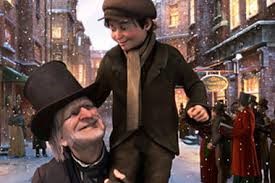- December 26, 2016
- Posted by: Stephen Johnson
- Category: Vistage



“Men’s courses will foreshadow certain ends, to which, if persevered in, they must lead,” said Scrooge. “But if the courses be departed from, the ends will change.”
Ebenezer Scrooge to the ‘Ghost of Christmas Yet to Come’
From Charles Dickens’ “A Christmas Carol”
Spend a little time with Ted ….
Depending on your company’s holiday schedule, you may have worked today, or are headed back tomorrow, or you’ll be going back to work just after New Year’s. If you want to meet the New Year with new knowledge and insights, kick back and check out the Ten Most Popular TED Talks of 2016!
Christmas with the Colonel
Many people think, not without reason, that Americans have made the holidays too commercialized. Maybe we’re exporting this as well. There is one American product that became part of the holiday tradition virtually overnight in another country that doesn’t even celebrate Christmas! Take a minute for some marketing insights explaining why millions of Japanese who don’t otherwise celebrate Christmas “visit the Colonel” every December 24! Sometimes all a product needs is a different market!
Christmas Carol Trivia
It wouldn’t be the holidays without Christmas Carols. You may be surprised at the unusual origins of some of these perennial favorites. For example, did you know that “Jingle Bells” was actually intended to commemorate Thanksgiving? If you’d like to have some trivia about your favorite carols to amaze your friends at Christmas dinner, check out the “Origins of Ten Popular Christmas Carols.”
Econ Recon: About That Inn Keeper…..
All we really know from the Christmas story is that “there was no room for them at the inn.” In most interpretations of this sentence the Innkeeper doesn’t usually come off very well. Economist Brian Wesbury looks at the story from an economic point of view and asks you whether this fellow was a “greedy innkeeper, or generous capitalist?” Something to remember during the Holidays is that there is always more than one way of looking at every story, and many times we add our own context to what little we truly know to make the story agree with our view of the world.
